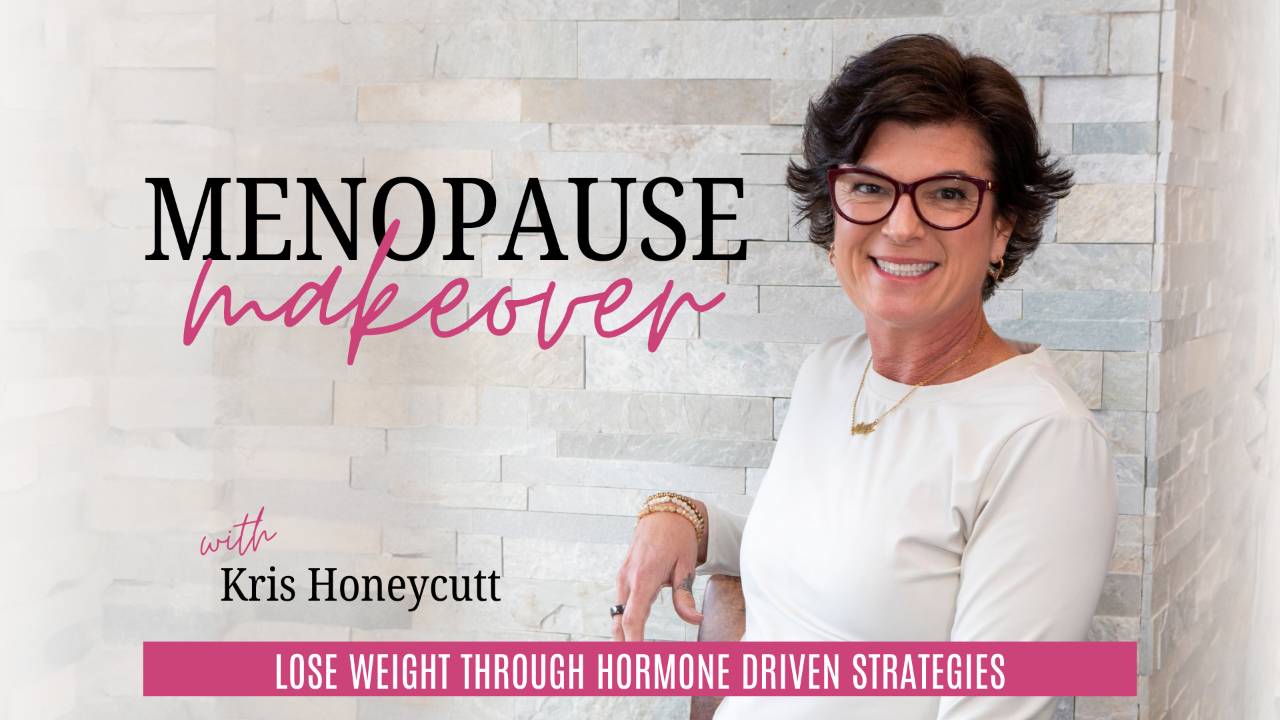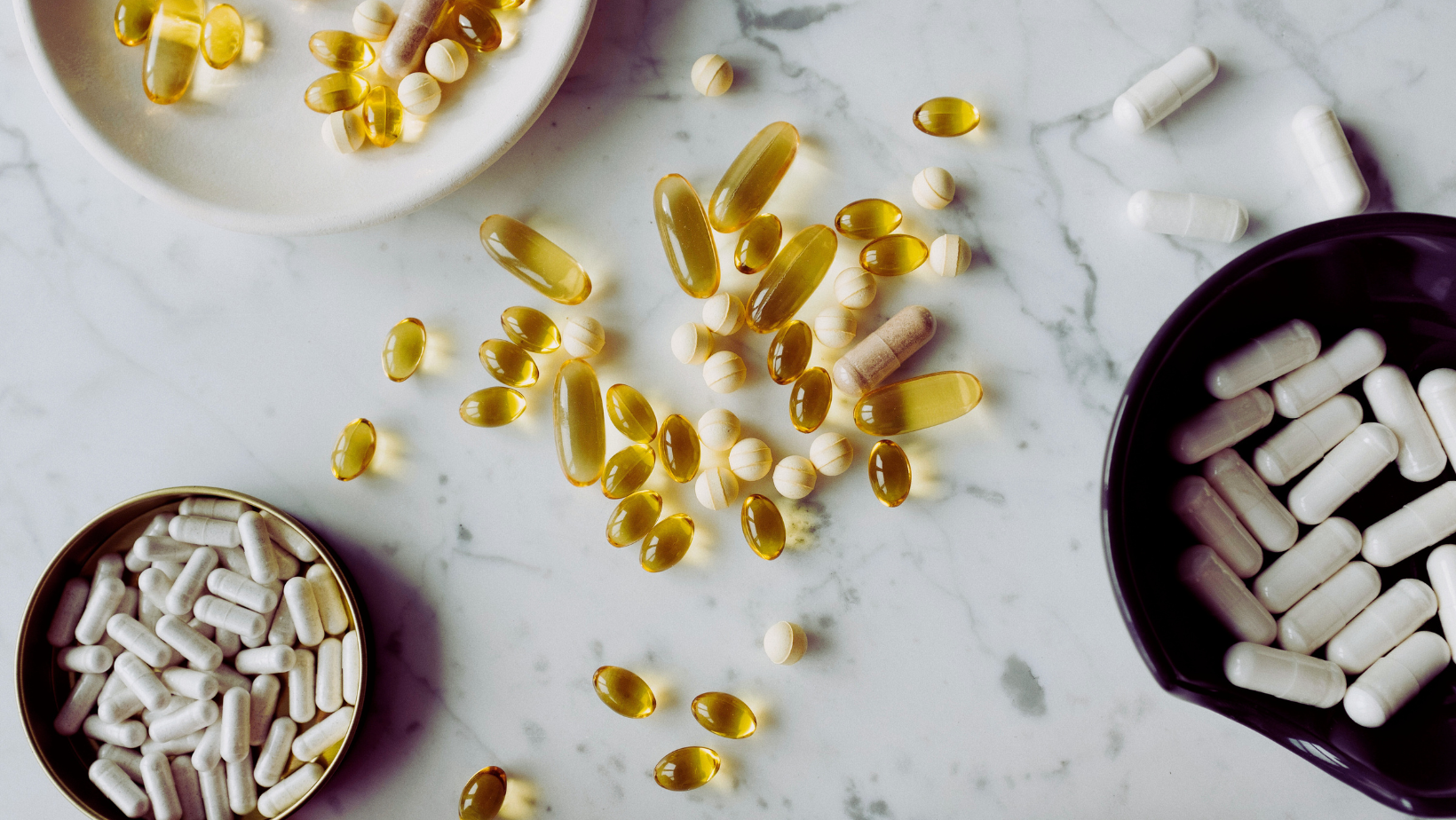5 Affordable Ways To Support Your Hormones In Perimenopause & Menopause

Apple Podcast - Spotify
Hey friend! Just so you know, this blog post contains affiliate links, which means I may earn a small commission if you purchase through them—at no extra cost to you. These links help support my work and allow me to keep sharing free content with you. I only recommend products I truly believe in! Thanks for your support!
If you’ve ever looked into bioidentical hormone replacement therapy (BHRT) and thought, “There’s no way I can afford that every month,” you’re not alone. BHRT can absolutely be life-changing—I’ve been on it myself for years—but it’s simply not within reach for every woman. And that’s okay.
Whether you’re already using BHRT, considering it, or you’ve decided it’s not for you right now, there are still powerful, budget-friendly ways to support your hormones in perimenopause and menopause. In fact, the lifestyle choices we’re about to cover can help you feel better, boost energy, reduce belly fat, and improve mood—even without prescription hormones.
Let’s talk about five affordable ways you can start supporting your hormones today.
1. Nourish Your Hormones With Smart Nutrition
I always say: food is medicine. What’s at the end of your fork matters more than most of us realize—especially in midlife. During perimenopause, estrogen and progesterone are on a rollercoaster. Once you reach menopause, there’s no “balancing” hormones because levels are so low. The goal shifts to supporting your hormones and your entire endocrine system so you can feel and function your best.
The first and most important step? Balance your blood sugar all day long. Big swings in blood sugar lead to insulin resistance—a hormonal domino effect that often brings stubborn belly fat, fatigue, and inflammation.
Here’s what to aim for at each meal:
- Protein (25–30 grams for most women)
- Fiber
- Healthy fat or slow carbs (depending on whether you’re in an S, E, or crossover setting in Trim Healthy Mama)
Protein is the kingpin here. It stabilizes blood sugar, helps you build and protect muscle, and keeps cravings in check.
Other key food strategies:
- Limit high-sugar snacks and processed carbs (those quick insulin spikes can create hormonal chaos).
- Eat on a regular schedule without grazing all day.
- Support your liver with whole, anti-inflammatory foods so it can process and detox hormones efficiently.

2. Hydrate and Reduce Hormone Disruptors
Midlife hormone shifts can dehydrate you faster than you think. You don’t need to force a gallon of water a day, but you do need consistent hydration. If plain water isn’t your favorite, flavor it naturally—lemon, cucumber, or one of my favorite Trim Healthy Mama sippers like the Parrot Punch Sipper. Electrolytes, like Ultima with sparkling water, are another way to boost hydration and help detoxification.
While you’re adding in the good, also start phasing out the things that stress your hormones—like xenoestrogens. These are chemical compounds found in plastics, conventional meats and dairy, and synthetic fragrances that mimic estrogen in your body. Over time, they can throw your endocrine system out of balance.
You don’t have to overhaul your home overnight. Make a list, then swap one thing at a time—starting with what you use most often, like food storage containers, personal care products, or cleaning supplies.

3. Support Gut Health for Better Hormone Balance
Your gut and your hormones are more connected than you might think. A healthy gut microbiome helps you metabolize hormones properly, absorb nutrients, and eliminate toxins. When your gut is out of balance—which can happen more easily in perimenopause and menopause—it can lead to more symptoms, more inflammation, and more frustration.
Fermented foods are one of the most affordable and effective ways to improve gut health: kefir (especially homemade), sauerkraut, kimchi, yogurt, miso, tempeh, natto, and even fermented cottage cheese. If you buy pickles, choose naturally fermented brands like Bubbies.
Don’t forget prebiotics too—these are the fibers in fruits and vegetables that feed your probiotics. Aim for a variety so you’re building a diverse gut microbiome.

4. Choose Supplements That Make a Difference
Food always comes first, but certain supplements can fill in gaps—especially in midlife when your body’s needs change. You don’t need a shelf full of bottles. Start with a few well-chosen basics and build from there if needed.
Supplements I recommend for most midlife women include:
- Magnesium glycinate or threonate – Supports sleep, mood, and insulin balance while calming the nervous system.
- Vitamin D3 + K2 – Essential for bone, brain, immune, and hormone health (test your levels before starting).
- Methylated B complex – Helps manage stress and supports hormone pathways, especially if you have the MTHFR gene variant.
- Adaptogens like maca or ashwagandha – Can help the body adapt to hormonal fluctuations and lower cortisol.
Click HERE to see these in my Amazon store.

5. Sleep, Stress, and Exercise—Your Hormone Reset Trio
If your sleep is poor, your hormones are suffering. Sleep is when your body repairs, makes growth hormone, and restores balance. Aim for a consistent bedtime and wake time, a dark and cool bedroom, and a wind-down routine without screens.
Stress management is equally important. Chronic stress keeps cortisol elevated, which robs progesterone, disrupts blood sugar, and leaves you feeling wired but tired. Give yourself margin in your schedule, take deep breaths during the day, get outside for gentle walks, and keep moving in ways that calm your nervous system.
And yes—exercise can be a hormone helper or a hormone stressor. In midlife, less is often more when it comes to high-intensity training. Your hormone-friendly exercise mix should include:
- Strength training 2x/week (lifting heavy enough to challenge your muscles)
- Short, intense bursts of cardio (HIIT) once a week
- Walking or other low-impact movement most days
Muscle is your longevity bank account. It helps regulate blood sugar, supports metabolism, and protects your bones. Pair your workouts with adequate protein to build and keep it.

You don’t have to choose between doing nothing for your hormones and paying hundreds each month for BHRT. Whether you’re in perimenopause or menopause, you can make simple, strategic choices—through nutrition, hydration, gut health, supplements, sleep, stress management, and exercise—that support your hormones, your energy, and your long-term health.
Small steps add up. Start with one change this week, and let it build into a lifestyle that works with your hormones, not against them.



